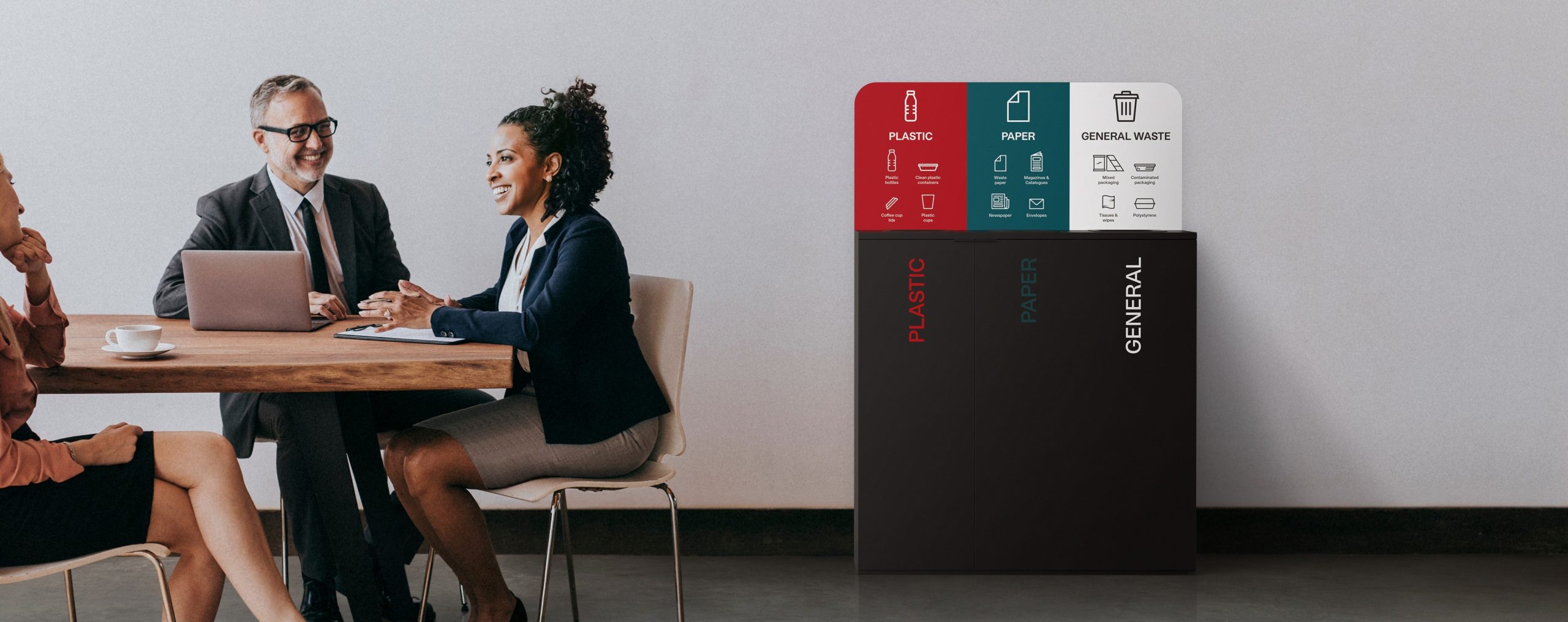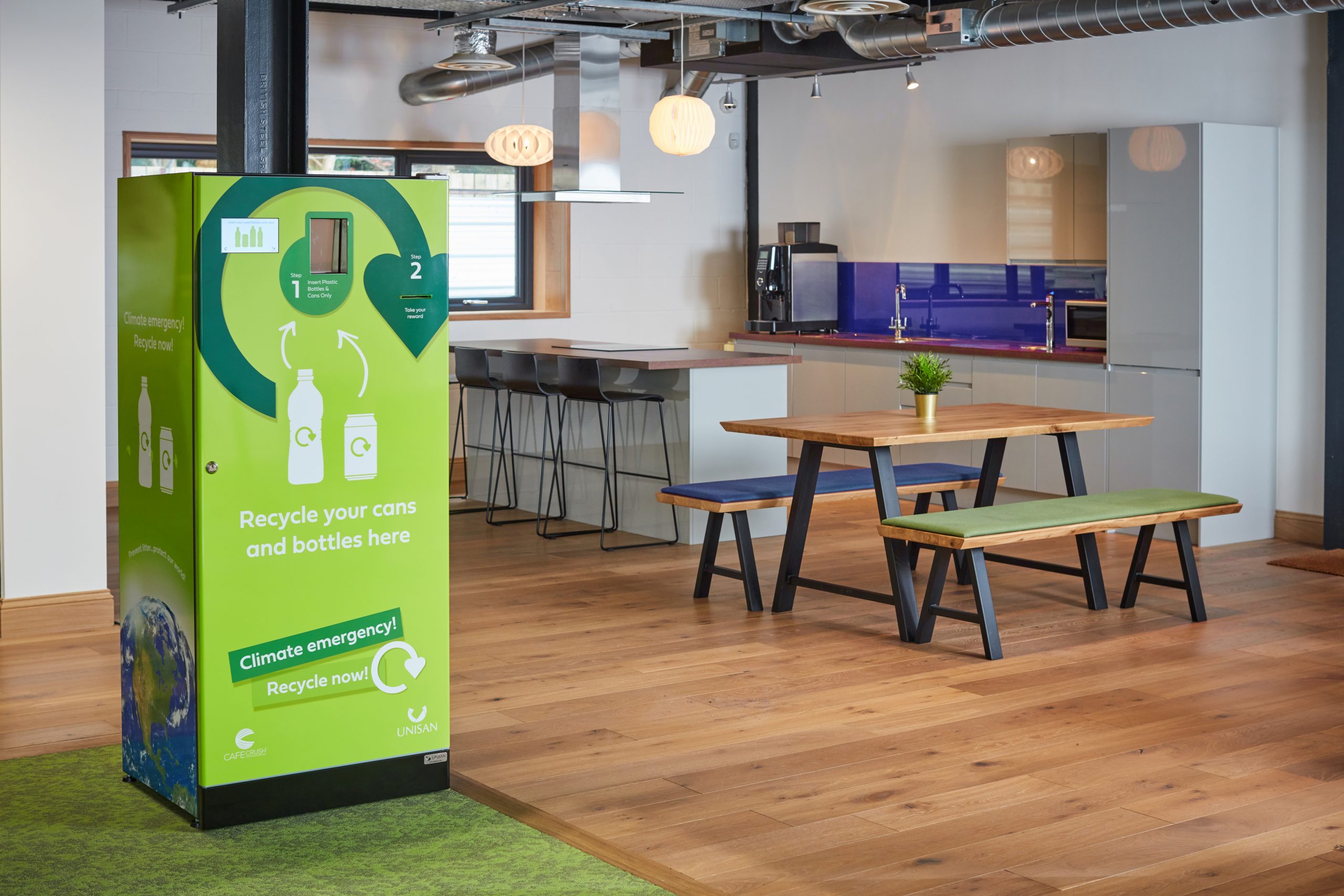When it comes to business waste disposal, there are a lot of questions that go under the radar and can be left unanswered. Throughout our website you will find examples of how recycling your business waste can save you money, save time, and even play a part in saving the environment…but do always you understand how?
Our resident Unisan expert, is here to help you answer those questions, and more.
During a recent interview we asked several pressing questions that we think will help you guide your recycling choices and waste disposal decisions today, and in the future.
Let’s dive in…
Let’s start off with the big question…Do you think that recycling is commercially viable for every business?
In simple terms, yes. The more you recycle, the cheaper most waste streams become and the more financially beneficial it is to recycle. Any business with more than one wheely bin of waste can benefit financially from a solid recycling process and the benefits are compounded in bigger businesses. If you’re an office with more than 10 people, then recycling can be highly commercially viable.
What is the most profitable recyclable waste?
Metal, although this is less frequently repurposed and not always recycled as standard. So in office environments, cardboard or loose, clear plastic is often the most profitable and widely recycled waste streams.
Prices can differ throughout the country however; each region has different process based on saturation of recycling businesses so will differ on where you live. To get a good indication of the prices you can expect from your waste streams in your local region, www.letsrecycle.com is an industry standard website to base rates off and will give you a great initial idea of what each region of the UK is paying and valuations of each material.
Environmentally speaking, glass can be seen as a fantastic circular option. It can be recycled infinitely so brings a lot more benefits in terms of wastage. Although it doesn’t generate as much rebate, it is a full reusable material versus other materials that lose integrity after multiple times.
What is the most expensive waste to recycle and why? Does this leave less margin for businesses?
This is usually highly dependent on the individual site volumes and make up of the waste, however there are a few general rules.
Food is usually expensive to recycle as it is high risk of contamination and requires a specialist recycling process than most other waste streams.
Mixed recycling needs sorting before it can be processed, so can also be very expensive, often requiring additional manpower to get through the procedure smoothly. This obviously comes with extra cost.
Sorted at source is usually the best way to overcome many of these additional costs associated with extra labour costs. A good tip to ensure you are making the most of your efforts is to check with your waste and recycling company to decide whether they are keeping your waste streams separate or batching it back together during disposal. You want to ensure that your efforts on site are not being lost when the waste leaves your business.
What are the collection costs for general waste versus Recycled waste?
This is a difficult question as the prices will vary geographically throughout the country based on the competition in the area and processing availability. Using www.letsrecycle.com can give you an indication of how much each should cost in your area.
As a rule of thumb, larger businesses often have more scope and geographical cover, but local providers can often be more competitive and offer personal support. The choice is wholly dependent on your own business needs and local availability.
As a more environmentally conscious choice, it may also worth considering how far your waste is travelling and the carbon impact of transferring your waste compared to processing locally. Though not always directly reflected in the price, more eco-conscious businesses may want to take this into consideration when looking at waste collection providers.
Are there any business rules and regulations that everyone needs to be aware of?
Yes, lot of rules and regulations that every company must adhere to, and each business should take responsibility towards their own wate disposal.
Always ensure health, safety and sustainability people are involved in the waste process within you business, it is down to the waste producer to adhere to the guidelines NOT necessarily the waste disposal business.
Having said that, we would always suggest speaking to your waste and recycling companies for any support that you need, they should be providing the expert support and giving guidance on your waste process. You should also consider speaking to your local council about their specific rules and/or the Environment Agency or other regulatory bodies that might have some beneficial input into your processes.
What is your absolute top tip for any business looking to recycle more?
My number one tip is to put the right segregation stations in at source. Doing this helps you to understand the volumes of waste being produced, the type of waste and gives you fantastic insight to help steer your waste strategy going forward.
Installing a recycling station such as the Unisort Aspire Office Recycling Bin Station makes it as easy as possible for your staff to recycle, and your company to reach the best possible recycling rates while reducing contamination. Fully customisable, from compact single bins to more comprehensive recycling solutions with multiple waste streams, your Aspire Recycling Station can be individually designed and created for any environment with custom colours, graphics and finishes to match any corporate colour palette.
A bonus tip is to ensure you always try to achieve maximum engagement with your team, sending the right message and make it easy and accessible. Take the option away for people to make the wrong decision!
What innovations and changes do you think the next 10 years will bring within commercial recycling?
The biggest one will be the DRS (Deposit Return Scheme). This is already commonplace in countries around the world and has been highly successful in improving recycling rates.
Put simply, when you buy a bottle or can, you will pay an extra % on your initial cost. This extra cost will then be reimbursed to you when the bottle and can is returned. This will be the next big recycling thing that everyone sees happening around them.
Products such as the with CafeCrush Reverse Vending Machines can get you ahead of the curve on these upcoming changes, incentivising your team to recycle by providing rewards via a ticket incentive scheme. The receipts can be programmed to give a range of rewards, from money off at the staff canteen to a donation to a charity. One client even chose to offer staff extra holiday for recycling plastic bottles!
Another innovation that is being driven by improving technology is what we can transform our waste into. At the moment we recycle the majority of our waste for energy, however there are innovations underway to transform waste into more practical uses such as aeroplane fuels. Repurposing waste into existing products rather than simply using waste to produce energy is going to be a huge step forward in waste management in the coming years.
Any other final piece of knowledge or advice you can give a business wanting to do more with their waste management and recycling?
Make sure you know what’s going inside your waste. Many people are using black bin bags in their waste bins, and you simply can’t see what’s in there.
Ensuring that you take note of what’s going into your general waste and how you can recycle them, most things that go into general waste are recycling materials. If the right processes and products were being used is a great step to ensuring your business is recycling more efficiently and cost effectively.
You can find out about the benefits of products such as Longopac continuous liners in some of our other blogs and articles on the website. These are a great first step in understanding and improving your waste process.
Where can we find out more about Unisan and extra support on waste and recycling processes?
The first port of call is to speak to a trusted expert, whether that is in person or via their website. The Unisan website is packed full of helpful articles, useful tips and innovative products that are all designed by experts in workplace recycling. With many years of experience and knowledge we’re passionate about making recycling at work easier and more engaging. We believe this enables people to do the right thing and allow companies to demonstrate their commitment to sustainability and the environment. Visit our news and insights section of our website for the most up to date and engaging content created to support you and your recycling journey- http://www.unisanuk.com/category/news ,or speak to one of our friendly expert team by contacting us here
Who are Unisan?
Unisan’s key mission is to empower and support workspace recycling, in any environment. We are continually assisting organisations in achieving their sustainability goals and helping businesses demonstrate their commitment to both the environment and their workforce.
Have we convinced you to introduce recycling solutions to increase recycling rates, engage staff and meet the sustainability goals of your business in your workspace? Hope so! Please reach out to a member of the Unisan team to learn more and we’ll be happy to help.
"*" indicates required fields


